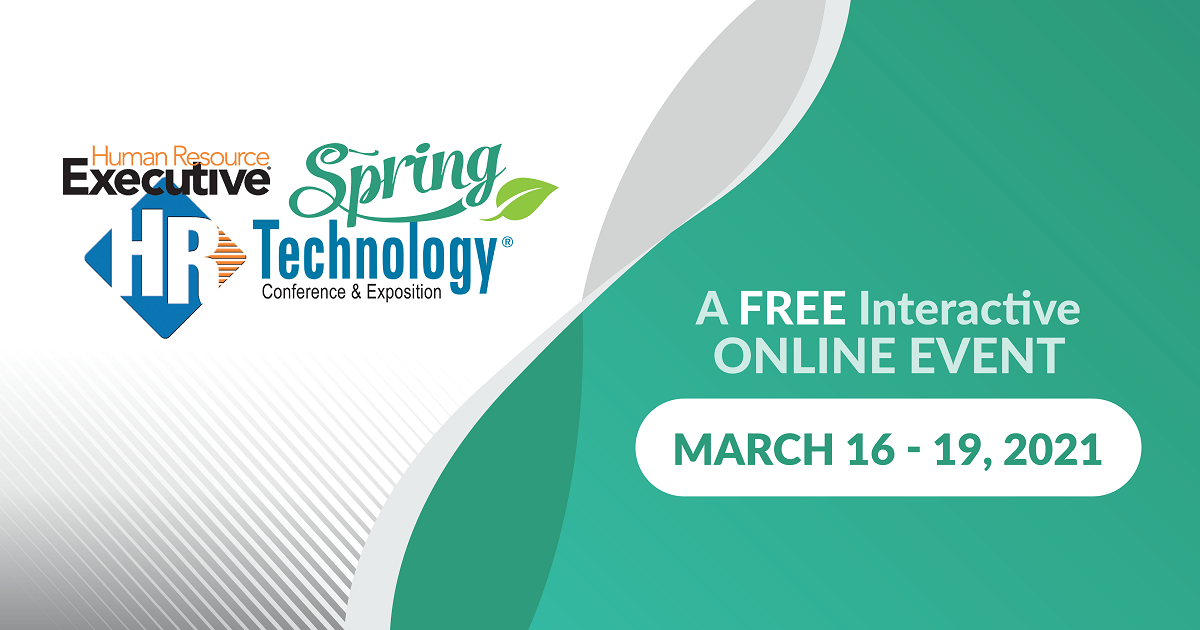The role of HR leaders has never been more important, as organizations struggle to keep up with near-daily changes to the world of work ushered in by the coronavirus pandemic and other global challenges, including the recent tumultuous presidential transition. With such a tall order for HR leaders, it’s beneficial to look to industry experts for their experience and guidance. Last year, HRE and the HR Tech Conference unveiled the second edition of the Top 100 HR Tech Influencers, comprised of HR, business and technology leaders whose insights are needed now more than ever.
Spring HR Tech is coming soon. Register here.
Influencer Jeanne C. Meister, managing partner at Future Workplace LLC, expects to see tools for training, learning and wellbeing to take off this year as employers adjust to the changes in the workplace and the realization that workers’ families are part of the employee experience equation now. Meister recently spoke with HRE about these and other trends on the horizon.

HRE: What HR tech trend that was gaining steam before COVID-19 has been most disrupted? Why and what’s replacing it, if anything?
Meister: Companies are transforming their learning and development, from re-designing instructor-led training to virtual-instructor-led to using virtual reality to deliver immersive learning experiences from the comfort of an employee’s home. Two recent Future Workplace research studies reinforce this trend. First, The Organizational Impact of the Coronavirus in the Workplace, an online survey of 600 HR IT and real estate leaders, found 77% of these leaders are accelerating their investment in designing virtual learning and 74% are creating new learning for how to operate high performing virtual teams.
The second HR tech trend that is accelerating is the use of virtual reality to train employees in a range of skills from safety training to soft skills. A Future Workplace research survey of 300 Learning and Development leaders in the United States found 72% say they will use virtual reality simulations for training by 2022 to help employees navigate challenging customer service experiences, resolve peer conflicts and develop soft skills. This is more than double the 35% of respondents who are currently deploying VR for training today.
HRE: What HR technologies should vendors be working on now?
Meister: I believe HR tech companies should invest more heavily in tech-enabled employee wellbeing and mental health solutions. These are becoming not just a “nice to have” benefit but a “must-have resource” for employee attraction and retention. Companies are investing in a range of tech platforms to support employees’ emotional wellbeing such as the mediation app Headspace, the tech-enabled mental health benefit Lyra Health and the digital health solutions company Solera.
Related: Mental health numbers ‘going in the wrong direction’
Mental health was already a critical issue facing employers prior to Covid-19. The global economy loses about $1 trillion annually in productivity because of depression and anxiety, according to the World Bank. Employees’ mental well-being is being threatened by the anxiety over the Covid-19 pandemic, reduced job security in an uncertain economy, and managing homeschooling in addition to remote working.
Given the magnitude of the pandemic’s mental health impact, more HR tech solutions are needed to provide tech-enabled wellness solutions to support an employee’s emotional, physical and mental health wellbeing. AXA Asia is already doing this with their BetterMe wellbeing platform. HR tech companies should invest in creating more of these holistic employee wellbeing offerings. They will be especially critical as more employees work remotely post Covid-19.
HRE: How do you think the remote work switch will affect employee expectations for workplace technology?
Meister: The biggest change in expectations of the remote worker is in the area of employee experience, defined as the sum total of an employee’s experience with their employer over the duration of their relationship, from hiring through to exiting the organization. Remote workers want a consumer-like experience at work that is tech-enabled, starting with a convenient and easy hiring process, followed by skill development, internal mobility and access to wellbeing resources. During the pandemic, there has been an increased expectation for employers to offer a compelling employee experience not only for the individual employee but also for families.
Related: 3 tips for navigating remote work for the long-term
Future Workplace research, The Organizational Impact of the Coronavirus in the Workplace, found 69% of HR, IT and real estate leaders reported their organizations were providing resources for the entire workers’ family unit–from remote wellness to back up child care, on-demand assistance with homeschooling and resources for taking care of aging parents. Companies are waking up to the fact that the employee experience is really the experience the entire family has with the employer.



